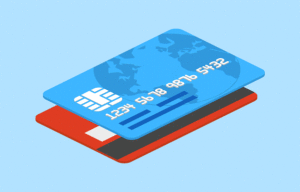Does your credit score go down when you check it?

The Difference Between Registered Credit Inquiries and Unregistered Credit Inquiries
Credit monitoring services allow you to view your credit score and credit report without affecting your score, since they use an unrecorded rather than a recorded credit inquiry.
The difference? An unregistered credit inquiry does not appear on your credit report, and therefore does not affect your score. On the other side, saved inquiries are displayed on your report and can be seen by other lenders. Banks and other financial institutions usually do a recorded credit check when you apply for a loan.
Take a look at our in-depth comparison between registered and unregistered credit inquiries in this article .
Why is it important to monitor your credit?
Monitoring your credit score and report can help you develop good credit habits. If you never check your credit report, you may have no idea how some of your habits affect your score. Reviewing your report regularly can also help you identify potentially suspicious or fraudulent activity. The sooner you detect these activities, the better your chances of protecting your credit score from serious damage.
What’s the best way to check your credit score?
Here are some best practices to keep in mind when monitoring your credit:
Find a reputable credit monitoring service: Make sure the company you choose will get your credit score through an unregistered survey. You can order your credit report or view it online through one of the two major credit reporting agencies in Canada: Equifax and TransUnion. Save money by going free: You can pay for a comprehensive credit monitoring service and fraud protection package. But most people just want to better understand their credit habits. If this is your case, try a free service. Be sure, however, to choose a safe and responsible company (which brings us to the next point).
Attention! Beware of scams: Most credit monitoring services require your Social Insurance Number (SIN), in whole or in part. Unfortunately, some of these services only seek to fraudulently obtain your SIN, and you risk becoming a victim of identity theft. So do your research thoroughly and make sure you choose a reliable service.
Sign up for a fraud alert service: Sign up for fraud alerts to better protect yourself against identity theft. Most banks, credit monitoring services and credit card providers offer this service. If your information is compromised, you’ll likely be able to freeze your accounts or credit before more damage is done.
Learn from your mistakes: If you notice that your habits (like late or missed payments) are hurting your credit score, remember that you can always change them and improve your score. Checking your credit regularly is a great learning opportunity. Did you make a mistake? Don’t worry: learn your lesson and move on.
What factors affect your credit score?
Your credit report is made up of five main components that ultimately determine your credit score:
Your payment history
Your use of credit
The length of your credit history
Your credit applications
Your credit combination
It should however be noted that the method of calculating the score may vary slightly from one credit bureau to another. If you monitor your credit through more than one source, don’t be surprised to notice a slight difference between the two scores.Monitoring your credit can help you develop habits that will improve your score over time. The benefits of a high credit score? Easier access to credit, lower interest rates and better credibility with potential employers who may request a credit check. Don’t let preconceptions stop you from being proactive in managing your credit score.






